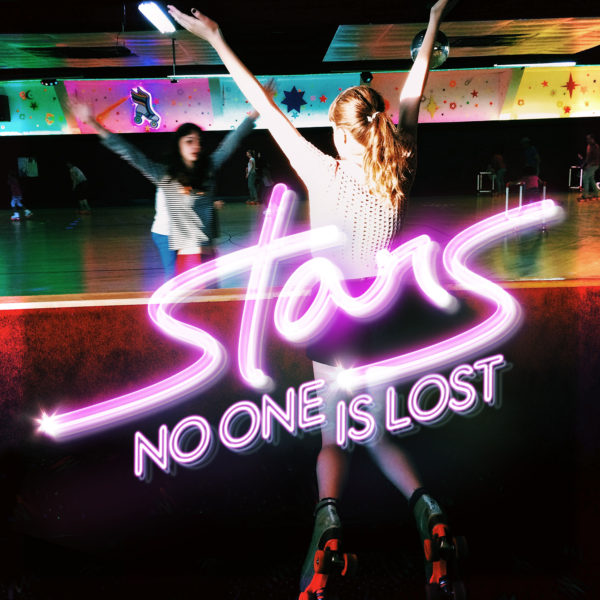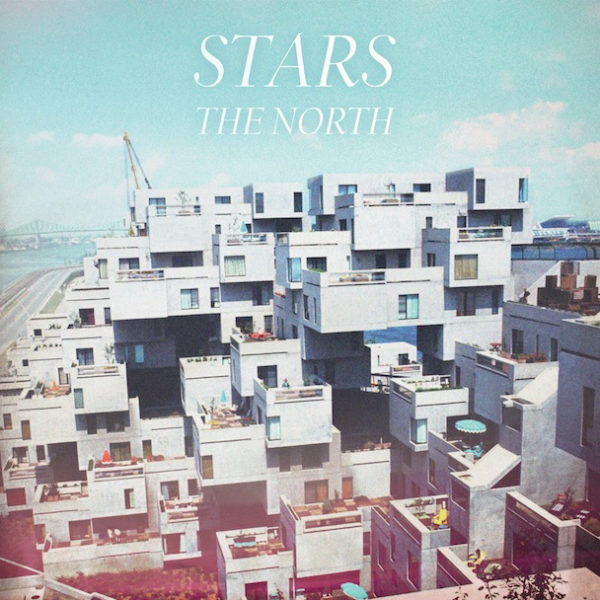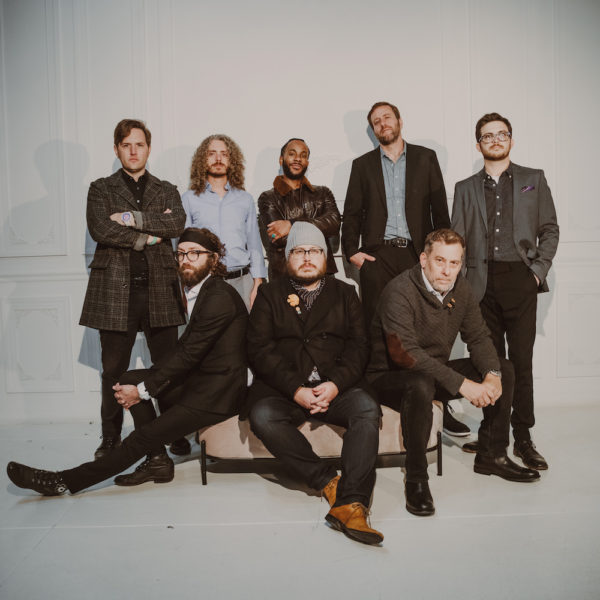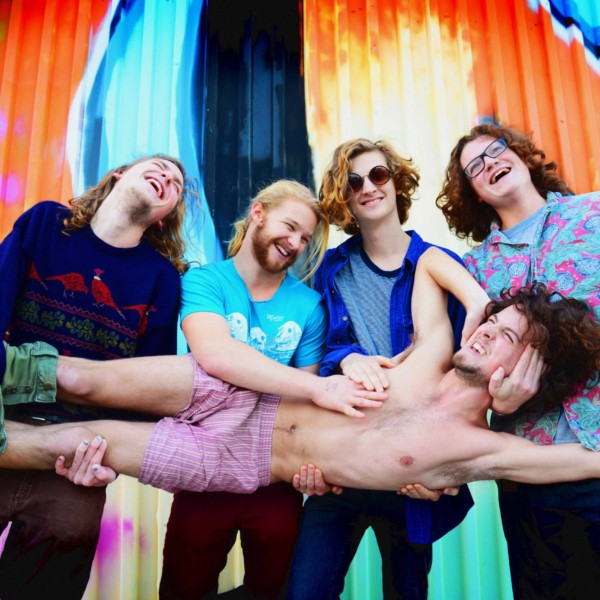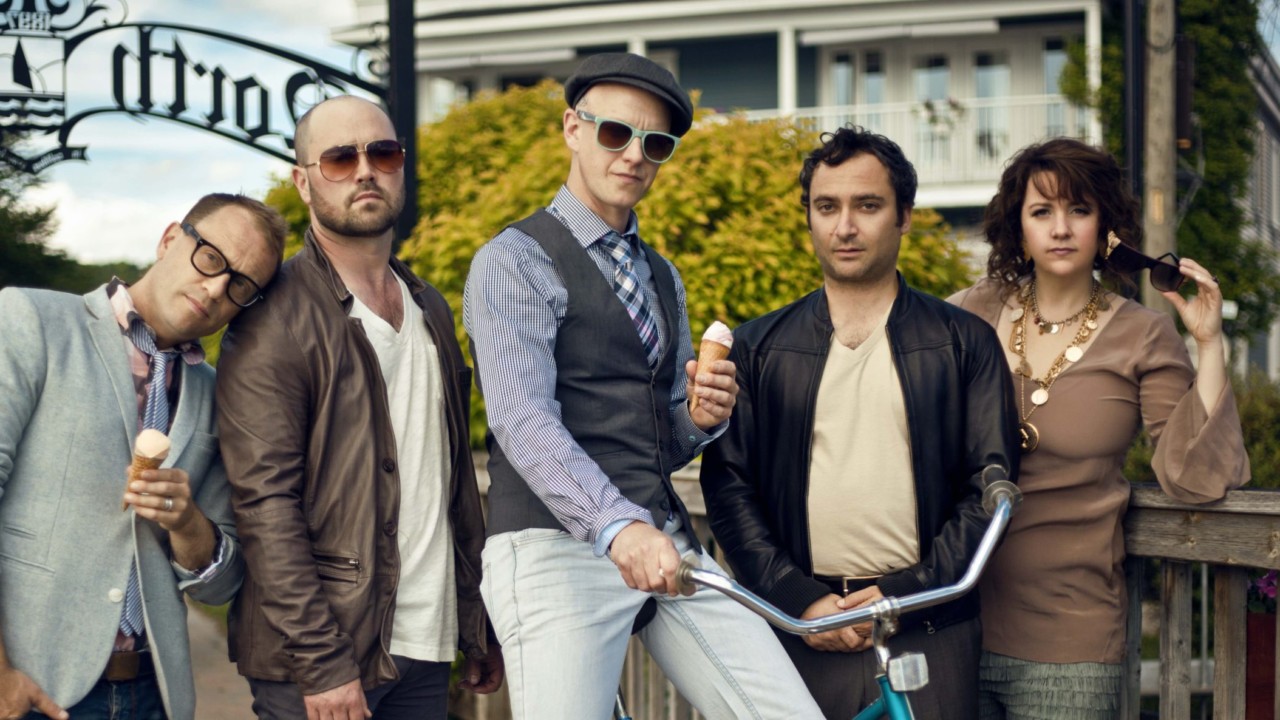
Stars
Like their celestial namesake, Stars only come out at night. It’s been 14 years since the Montreal band debuted with an album of intimate synth-pop whispers titled Nightsongs, but really, any of the increasingly assertive and sonically elaborate records they’ve released since could be named that. Whether between the sheets or on the streets, the nighttime is when the most pivotal moments of your life play out: the drunken dusk-to-dawn hangs through which eternal friendships are forged; the knowing glance across the dancefloor that leads to exchanged phone numbers, that ominous 3 a.m. phone call from the hospital; the decision to turn a new leaf that can only come when you’ve spent five despairing hours staring at a ceiling fan. These are the worlds that Stars songs inhabit, to show us that, even in our most vulnerable and naked states, we are never truly alone.
Stars’ albums have always served as thermochromic barometers of their makers’ emotional well-being, be it the romantic upheaval of 2003’s Heart and 2004’s Set Yourself On Fire, the newsticker-triggered discontent of 2007’s In Our Bedroom After the War, the downcast elegies of 2010’s The Five Ghosts (a requiem for singer Torquil Campbell’s father, who passed away during the album’s creation), or the rejuvenation of 2012’s The North (recorded while inter-band couple Amy Millan and Evan Cranley were in the throes of new parenthood). However, as Millan admits, the band initially approached its new seventh album from a place of relative stability. “We’ve always had so many things defining every album, whether it was the band going through a difficult emotional turmoil, Torq’s father passing away, or us having children. And now it’s like: You know what? We’re pretty good. This is one of the best times of our lives.”
This time around, Stars decided to scratch the seven-album itch by shaping their own environment. After inheriting the Mile End rehearsal space vacated by the then-disbanding Handsome Furs, Stars refashioned the space—“basically a dirty apartment,” says Cranley—into a fully operational studio, where recording for No One Is Lost began last December with old friend Liam O’Neil (Metric, The Stills) behind the boards.
“It was initially quite painstaking,” says keyboardist Chris Seligman. “But we put love into our space and our space gave us love back.”
Campbell is also a parent, but his recording sojourns in Montreal allowed him to keep, shall we say, more traditional musician’s hours.
“I’m a nighttime guy, I don’t really like making records in the day,” says Campbell, who made the studio his home for the duration of his recording sessions. “I slept on the couch. I’ve never enjoyed making a record so much, because I always hated going home at the end of the day. This time, in Montreal, the studio was my home.”
Funnily enough, it was during one of Campbell’s studio sleepovers that the city itself became truly present: noise was bleeding in from the gay discotheque, The Royal Phoenix, located on the floor below them.
Says Campbell: “I went to sleep to the sound of Charli XCX every night—and I loved it.”
So rather than fight the funk, Stars rolled alongside, with the incessant 4/4 thump emanating from below serving as the metronomic template that would form the basis of No One Is Lost. You can hear that influence percolate in real time on the album’s monumental lead-off track “From the Night”—Stars’ most epic opening salvo since Set Yourself on Fire’s “Your Ex-Lover Is Dead”—with a near-subliminal pulse vibrating the floorboards beneath your feet before exploding into a kaleidoscopic, French-touched house jam. And that crowd noise you hear at the beginning? That’s Millan and Seligman walking into The Royal Phoenix during a Friday-night rager, field-recording gear in hand.
“The sub-bass throb coming from the club below our studio was undeniably and unavoidably influential,” affirms drummer Pat McGee. “It motivated us to out-throb the throb.”
But the Royal Phoenix proved to be more than just a musical inspiration; the bar essentially served as Stars’ home away from home, with the band coming to know the servers on a first-name basis, and even getting cocktails christened in their honour. And through observing the bacchanalia playing out every weekend in their de facto rec room, the thematic framework for the album came into focus.
“I always find it so moving and beautiful to watch people have their nights out. “ Campbell explains. “There’s something so heartbreaking about it: People have jobs that they have to get up for, jobs they hate, and they live for the weekend; they live for these moments. And they put everything they have into it: They put all their money into it, they put their emotion into it, they sacrifice their health for it, just to make a connection out there, and go home with someone and not be alone.”
During the writing of the new album, Stars were hit with another cruelly sobering reminder of just how precious our days here on this planet really are: the band’s long-time manager, Eoin O Leary, was diagnosed with cancer.
Fortunately, No One Is Lost translates all that anxiety into pure ecstasy, from the laser-cut new-waved precision of Millan’s “This Is the Last Time” to the soaring, Mozzerific chorus of Campbell’s “Trap Door” to the dreamy duet “Look Away.” And the titanic title track-closer—the sound of a dancefloor being swallowed whole by an ocean of sweat and swapped spit—feels like the moment Stars’ entire 15-year journey has been leading up to, a euphoric house banger that distills all the hope, fear, joy, sadness, and sex in the band’s songbook into a pair of unshakeable mantras: “put your hands up because everybody dies / put your hands up if you know you’re going to lose.”
“The fact Eoin got cancer is definitely sewn into the fabric of the album, lyrically and sonically,” Millan reveals. “Because you had to believe he was going to be okay. [Spoiler alert: he’s currently recovering from treatment quite nicely.] I think that’s where the title No One Is Lost comes from: We were the army standing behind him.”
Campbell, for his part, offers a somewhat more urgent interpretation:
“This record’s called No One Is Lost because that is a fucking lie. We are all lost, we are all going to lose this game and, as you get older, you lose people more and more. Eoin’s been facing down the Grim Reaper, and that was bringing us the fuck down. But we decided to go for it anyway, and so did he, and it was enormous act of blind hope to even think he would make it this far. So I wanted to call this record No One Is Lost because I just wanted to close my eyes and jump and hope that was true. Life is loss, love is loss. And loving people is about accepting that you’re going to have to say goodbye to them. And that’s why it’s fucking brave. It’s easy to hate, because you never have to let go of anything. It takes guts to be gentle and kind. That’s Stars’ ethos: this life is very heartbreaking and sad… so let’s get completely fucking arseholed and listen to some Dionne Warwick.”
Alas, Stars will need to find a new place to get arseholed: The day that the mastering of No One Is Lost was completed last July, word got out that The Royal Phoenix was closing, despite its undiminished popularity among local revellers. But then, this sudden turn of events was an oddly appropriate denouement for an album that evolved according to its own curious logic. After all, No One Is Lost is a record that began with Stars building a studio hideaway that allowed them to function as a self-contained unit free of external pressures, yet wound up being greatly shaped by its surrounding environment. And it’s a record that, at its core, was intended as a celebration of life but became a rallying cry for an ailing friend and, now, a eulogy to a beloved bar. But that’s the equally wonderful and terrifying thing about living for the night: you never know what the next one’s going to bring you. Each sundown marks not the end of the day, but the beginning of a new adventure into the unknown—and No One Is Lost is the radiant flash of pink neon that lights the way. So, go dance.
